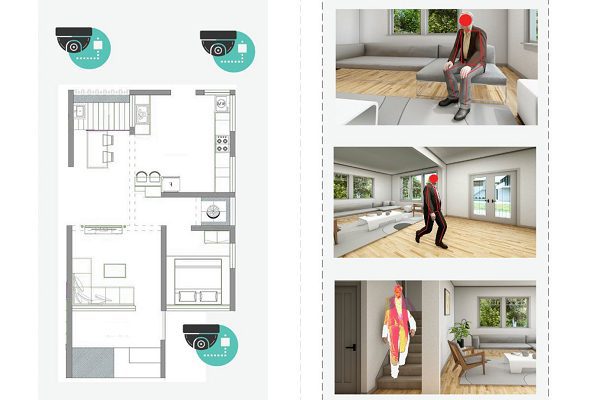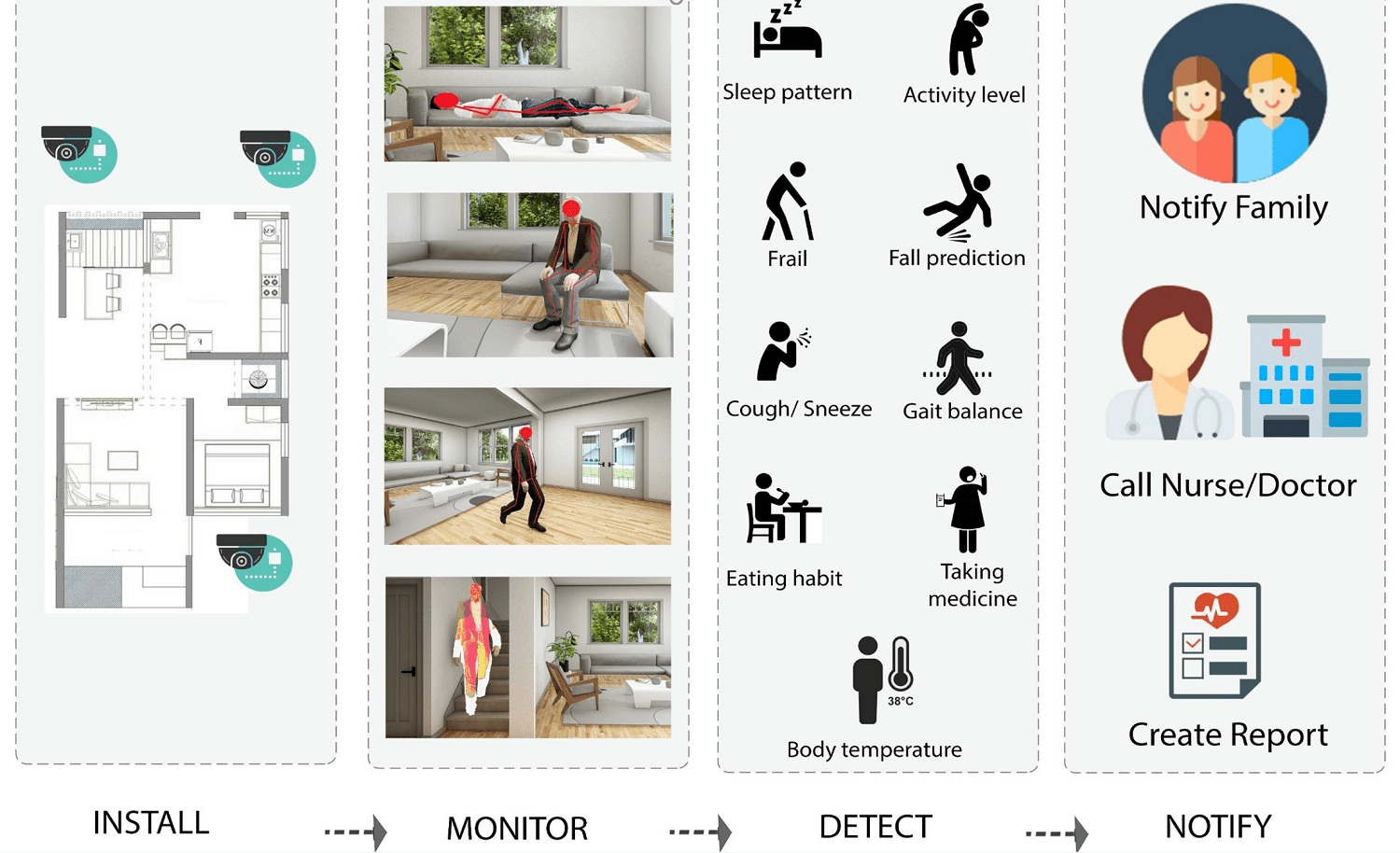Health Monitoring System for Elderly Wins NSF Grant

A project co-led by Dr. Mona Azarbayjani, associate professor of architecture, and Dr. Hamed Tabkhi, assistant professor of electrical and computer engineering, has received a Small Business Technology Transfer Phase I (STTR) grant from the National Science Foundation (NSF). The NSF STTR program funds research and development to help transform scientific discovery into products and services with commercial potential and/or societal benefit.
Azarbayjani and Tabkhi have received a grant for $255,992 for their project, “Camera-Based Multimodal AI for Health Monitoring,” which seeks to use cutting-edge technology to improve the care of older people in both home and institutional environments. The research team also includes Dr. Mohammadreza Baharani, engineering postdoctoral fellow, and PhD candidate Roshanak Ashrafi. Their research comes at a crucial moment, when a dramatic population shift and a decline in healthcare workers are projecting a crisis in elder care.
The number of elderly people in the U.S. is growing rapidly. According to census data, in the next decade one out of every five Americans will be 65 or older, and by 2034 the elderly will outnumber children for the first time in census history. At the same time, the number of healthcare workers is dwindling – particularly home health aides and nursing home attendants, and the industry is experiencing a dire shortage.
The team’s research adds to a fast-growing sector of the healthcare industry: remote patient monitoring. “The outcome of this project will be a system that enables holistic, accurate, and faster monitoring of elderly people that will 1) improve the quality of life and health of senior citizens, 2) address the future nursing shortage, particularly in the geriatric field, and 3) reduce healthcare costs,” the researchers wrote in their grant proposal.
The advanced system will use computer vision and sensor fusion processing for real-time continuous monitoring and analysis of the elderly in a non-intrusive way that protects privacy.
Azarbayjani and Tabkhi both work in the interdisciplinary Infrastructures and Environmental Systems (INES) program. They began their partnership three years ago with research into “smart building” technology that can monitor occupants’ body temperatures from a distance, without the need for direct person-to-person contact. That project, “A Contactless Non-Intrusive Approach for Personalized Thermal Comfort Model Development,” used sophisticated artificial intelligence and thermal and RGB camera technologies to gather facial temperature data while protecting individual privacy. First funded by a 2020 seed grant from the School of Data Science, the research focused on the potential to develop personal comfort models that could make buildings more pleasant and healthful places for occupants and also potentially reduce overall energy use.
That research team, which included Ashrafi, subsequently earned a $50,000 National Science Foundation I-Corps grant in January 2021 to expand the investigations and use the real-time data gathering to identify symptoms of illness to reduce the spread of diseases. The NSF created I-Corps grants to help faculty and students “extend their focus beyond the university laboratory and accelerate the economic and societal benefits of NSF-funded, basic-research projects that are ready to move toward commercialization.” Architecture alumnus Damian Honeycut served as the project’s business/private sector mentor.
The next stage of research will greatly expand the data gathering capacity, with the possibility of alerting caregivers to physical and behavioral characteristics that could indicate illness, loneliness and depression, or a likelihood of falling – among other hazards. In June the research team will set up a space in PORTAL, a simulation of a private room in a retirement home, where they can carry out testing of the technology.
